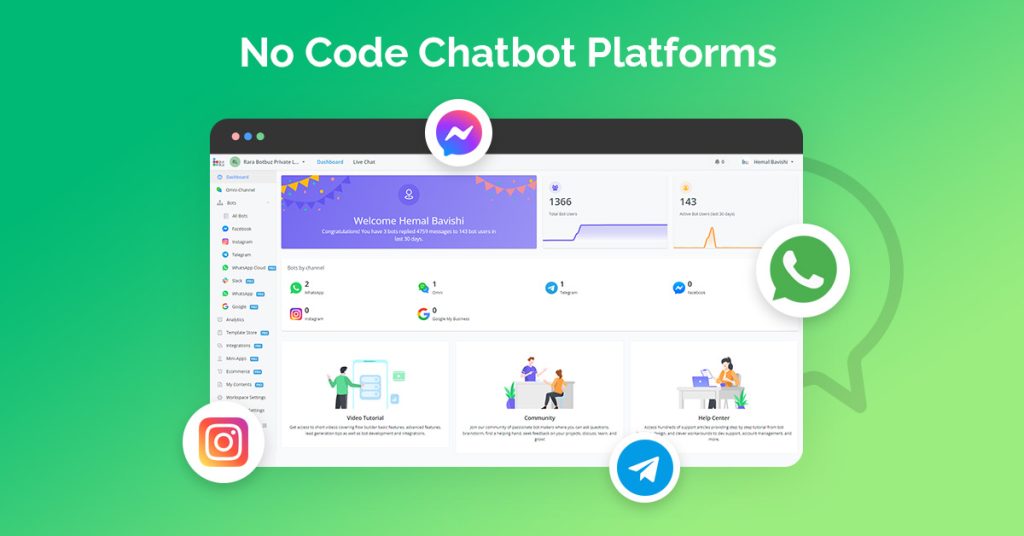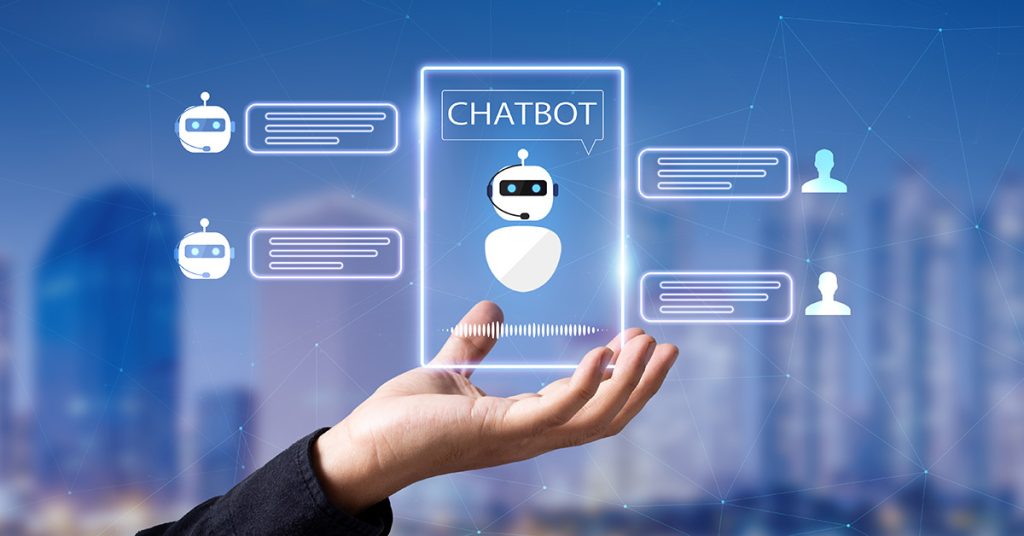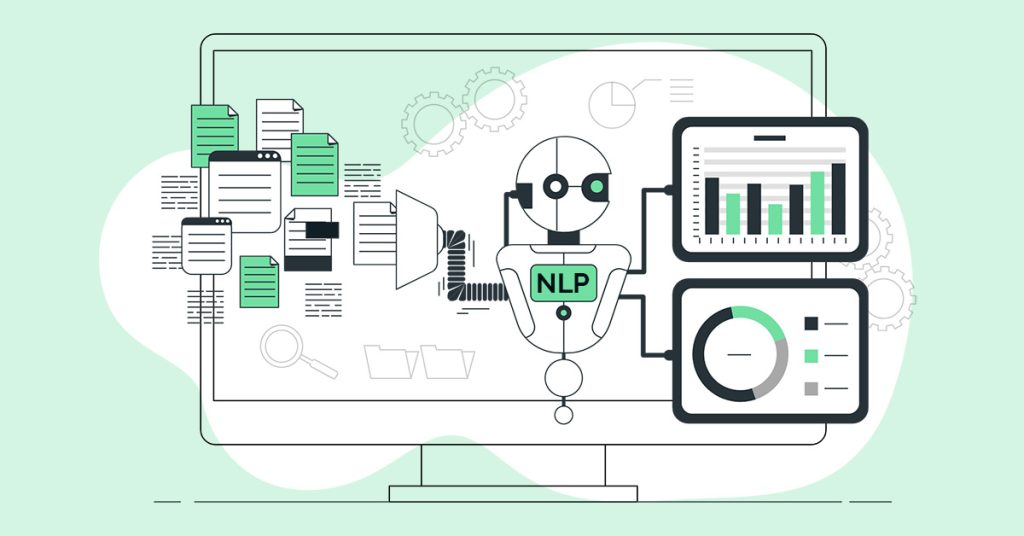- The Evolving Consumer Landscape :
- The Role of Technology in Reshaping Consumer Experiences :
- Chatbots : A Key Driver of Change
- The Rise of Chatbots in Consumer Interactions for improving Consumer Experiences :
- Benefits of using chatbot for improving Consumer Experiences :
- Different Uses of Chatbots :
- Overcoming Challenges in Chatbot Implementation :
- Future Trends in Chatbot Technology :
- Botbuz Chatbot Solution :
The Evolving Consumer Landscape :
The consumer landscape is undergoing a rapid transformation. It is driven by a confluence of factors including technological advancements, economic shifts, and changing demographics. Consumers today are more informed, demanding, and connected than ever before. They expect personalized experiences, instant gratification, and seamless interactions across all touchpoints. To thrive in this dynamic environment, businesses must adapt to the evolving needs and expectations of their customers.
The Role of Technology in Reshaping Consumer Experiences :
Technology has emerged as the primary catalyst for reshaping consumer experiences. From smartphones and social media to artificial intelligence and virtual reality, innovations are disrupting traditional business models and creating new opportunities. Consumers now have access to a wealth of information at their fingertips. Thus, enabling them to compare products, research brands, and make purchasing decisions with unprecedented speed and efficiency. As a result, businesses must leverage technology to create engaging, personalized, and convenient customer journeys.
Chatbots : A Key Driver of Change
Chatbots, powered by artificial intelligence, are at the forefront of this technological revolution. These conversational agents are transforming the way businesses interact with customers. It provides instant, round-the-clock support, personalized recommendations, and efficient problem-solving. Chatbots have the potential to streamline operations, enhance customer satisfaction, and drive revenue growth.
The Rise of Chatbots in Consumer Interactions for improving Consumer Experiences :
History and Evolution of Chatbots :
The concept of chatbots dates back to the mid-20th century. With early examples like ELIZA, a program designed to simulate conversation with a human.
However, it’s in recent years that chatbots have experienced exponential growth and sophistication. Advancements in natural language processing (NLP), machine learning, and artificial intelligence have enabled chatbots to understand and respond to human language with increasing accuracy and nuance.
Early chatbots were primarily rule-based systems with limited capabilities. They could only handle simple queries and lacked the ability to learn and adapt. Today, chatbots have evolved into sophisticated AI-powered conversational agents. It can engage in complex dialogues, understand context, and provide personalized experiences.
The Growing Importance of Real-Time Customer Interactions :
Consumer expectations have shifted dramatically. Customers now demand immediate responses and personalized service. Traditional customer support channels, such as phone calls and email, often fall short in meeting these expectations. Chatbots offer a solution by providing real-time interactions. It enables customers to get the information or assistance they need instantly.
The ability to engage with customers in real-time is crucial for building strong customer relationships. By addressing customer inquiries promptly and effectively, businesses can increase customer satisfaction, loyalty, and advocacy.
Growth in Chatbot Adoption and Usage Trends :
Chatbots have rapidly evolved from novelty to necessity in the realm of communication. Several factors have contributed to their widespread adoption :
- Increased mobile usage : As smartphones became ubiquitous, messaging apps replaced traditional communication channels. Chatbots, being inherently digital, seamlessly integrated into this mobile-first ecosystem.
- Demand for instant gratification : Consumers expect immediate responses. Chatbots have the ability to provide real-time answers and solutions. It perfectly aligns with this consumer expectation.
- Cost-efficiency : Businesses can significantly reduce customer service costs. It is through automating routine inquiries through chatbots.
- 24/7 availability : Unlike human agents, chatbots can operate around the clock. It ensures uninterrupted customer support.
- Personalization : Advanced chatbots can analyze customer data to offer tailored recommendations & consumer experiences.
Comparison with Traditional Communication Channels :
Chatbots offer several advantages :
Efficiency : Chatbots can handle multiple queries simultaneously, reducing wait times.
Scalability : They can handle increasing customer volumes without compromising service quality.
Consistency : Chatbots deliver consistent messages and responses, ensuring brand uniformity.
Data collection : Chatbots can gather valuable customer data for analysis and improvement.
Benefits of using chatbot for improving Consumer Experiences :
Core Benefits :
24/7 Customer Support Availability : Chatbots eliminate wait times. It provides round-the-clock assistance, enhancing customer satisfaction.
Enhanced User Engagement and Personalized Interactions : By understanding customer preferences, chatbots deliver tailored experiences. Thus, increasing engagement and loyalty.
Cost-Efficiency and Scalability : Automating routine tasks reduces labor costs and allows businesses to handle increased customer volumes efficiently.
Data Collection and Insights for Improving Services : Chatbots gather valuable customer data. Thus, enabling businesses to identify trends, preferences, and areas for improvement.
Reduction in Response Time and Increased Efficiency : Chatbots provide instant responses. It streamlines customer interactions and boosts overall efficiency.
Additional Benefits :
Lead Generation and Sales : Chatbots can qualify leads, answer product questions, and guide customers through the sales funnel.
Improved Customer Satisfaction : By addressing customer inquiries promptly and accurately, chatbots contribute to higher satisfaction levels.
Increased Productivity : Automating tasks frees up human agents to focus on complex issues. Thus, building strong customer relationships.
Consistent Brand Messaging : Chatbots deliver consistent brand messaging across all interactions.
Multilingual Support : Chatbots can communicate in multiple languages, expanding your customer base.
Different Uses of Chatbots :
Core Use Cases :
Customer Support and Troubleshooting : Providing instant answers to FAQs. Also resolving common issues & escalating complex problems to human agents.
Lead Generation and Qualification : Identifying potential customers, collecting contact information. Also qualifying leads based on predefined criteria.
Appointment Scheduling and Reminders : Booking appointments, sending reminders, and managing cancellations.
Product Recommendations and Upselling : Suggesting products based on customer preferences. Also cross-selling & upselling relevant items.
Conducting Surveys and Collecting Feedback : Gathering customer opinions. Also measuring satisfaction & identifying areas for improvement.
Additional Use Cases :
Order Processing and Tracking : Handling order placement, status updates, and returns.
Financial Services: Providing account information, processing payments, and offering financial advice.
Education : Tutoring, answering student questions, and providing course information.
Healthcare : Scheduling appointments, providing medical information, and offering patient support.
Internal Business Processes : Automating HR tasks, IT support, and employee onboarding.
Chatbots are versatile tools with applications across various industries. Their ability to handle routine tasks, provide information, and engage with customers makes them invaluable assets for businesses seeking to improve efficiency and consumer experience.
Overcoming Challenges in Chatbot Implementation :
Common Obstacles and Limitations :
Implementing a chatbot can be a complex process fraught with challenges. Some common obstacles include :
Limited Natural Language Understanding (NLU) : Chatbots can struggle to interpret complex or ambiguous queries. It leads to frustration.
Lack of Human-like Interaction : Chatbots have improved. But they still often fall short in mimicking human conversation and empathy.
Technical Issues : Integration with existing systems, platform compatibility, and maintenance can be time-consuming and costly.
Data Privacy and Security : Handling sensitive customer data requires robust security measures to prevent breaches.
User Adoption : Encouraging customers to use the chatbot rather than traditional channels can be challenging.
Strategies for Overcoming These Challenges :
To address these challenges, businesses can implement the following strategies :
Continuous Improvement : Regularly update the chatbot’s knowledge base. Also refine its language processing capabilities.
Hybrid Approach : Combine chatbots with human agents for complex or sensitive inquiries.
Robust Testing : Thoroughly test the chatbot under various conditions. It helps to identify and address issues.
Data Security Measures : Implement strong encryption, access controls, and data protection policies.
Clear Communication : Educate customers about the chatbot’s capabilities. Also encourage its use through clear messaging.
Personalization : Tailor the chatbot’s responses to individual users. It is on the basis of their preferences and behavior.
Ensuring a Balance Between Automation and Human Touch :
While chatbots can handle many routine inquiries, it’s essential to maintain a human element. Striking the right balance involves:
Identifying Chatbot Strengths : Determine which tasks are best suited for automation.
Human Intervention : Implement a seamless handover process to human agents when needed.
Quality Assurance : Monitor chatbot interactions and provide feedback for improvement.
Customer Feedback : Gather customer input to refine the chatbot’s capabilities.
Future Trends in Chatbot Technology :
Advancements in AI and Natural Language Processing :
The future of chatbots links with advancements in artificial intelligence (AI) and natural language processing (NLP). We can expect :
Hyper-realistic conversations : AI will enable chatbots to engage in human-like conversations. It understands nuances, context, and emotions with greater accuracy.
Multimodal interactions : Chatbots will evolve to incorporate voice, text, and visual elements. Thus, creating more immersive and engaging experiences.
Continuous learning and adaptation : AI-powered chatbots will become more adept at learning from interactions. It improves responses over time, and adapts to user preferences.
Emerging Trends in Chatbot Functionality and Consumer Experience :
Hyper-personalization : Leveraging extensive data, chatbots will deliver highly personalized consumer experiences. It is on the basis of individual needs and preferences.
Proactive assistance : Chatbots will anticipate user needs & offer proactive solutions. Thus, enhancing customer satisfaction.
Emotional intelligence : Chatbots will be able to detect and respond to user emotions. It helps in building stronger relationships.
Integration with IoT devices : Chatbots will become central hubs for controlling smart homes and other connected devices.
Predictions for the Future Impact of Chatbots on Consumer Experience :
The integration of chatbots into everyday life will revolutionize consumer experiences :
24/7 support : Chatbots will provide round-the-clock assistance. Thus, eliminating wait times and improving customer satisfaction.
Seamless omnichannel experiences : Chatbots will bridge the gap between different channels. Thus, offering consistent interactions across platforms.
Enhanced shopping experiences : Personalized product recommendations, virtual try-ons, and streamlined checkout processes will become the norm.
New business models : Chatbots will create opportunities for innovative business models. It includes chatbot-based commerce and virtual assistants.
Botbuz Chatbot Solution :
Botbuz is a leading provider of no-code chatbot solutions. It empowers businesses to create and deploy intelligent conversational agents without requiring extensive technical expertise. Their platform offers a comprehensive suite of tools and features designed to streamline the chatbot development process. Thus, delivering exceptional consumer experiences.
Key Features and Advantages of Botbuz Chatbot Solution
No-code platform : Botbuz’s user-friendly interface allows businesses to build chatbots without writing a single line of code.
AI-powered capabilities : Advanced natural language processing (NLP) and machine learning enable intelligent and engaging conversations.
Multi-channel integration : Chatbots can be deployed across various platforms. It includes websites, messaging apps, and social media.
Customization options : Businesses can tailor chatbots to match their brand identity and specific requirements.
Analytics and reporting : Detailed insights into chatbot performance help optimize strategies and measure ROI.
Scalability : Botbuz can handle increasing customer volumes and growing business needs.
Use Cases and Success Stories of Businesses Using Botbuz :
Botbuz has a diverse clientele across industries. It includes e-commerce, healthcare, finance, and customer service. Some common use cases include :
- Providing 24/7 customer support
- Generating and qualifying leads
- Scheduling appointments
- Offering product recommendations
- Collecting customer feedback
How Botbuz Stands Out from Other Chatbot Solutions ?
Botbuz differentiates itself through :
Ease of use : Its no-code platform is accessible to businesses of all sizes.
Advanced AI capabilities : Botbuz leverages cutting-edge technology for superior chatbot performance.
Comprehensive feature set : The platform offers a wide range of tools and integrations.
Customer support : Botbuz provides excellent support to help businesses succeed.
Cost-effectiveness : Competitive pricing and a good return on investment.
By focusing on simplicity, intelligence, and customization, Botbuz has established itself as a preferred choice for businesses seeking to harness the power of chatbots.




